
Wolf
Wolf
Wolf
The wolf is the largest and strongest of the canines, and is a representative of the canine family. In addition to its cool appearance, wolves have a somewhat mysterious atmosphere, such as howling, which is not seen in other animals, and have been used as a motif for various stories and characters since ancient times. Whether you have an image of wolves as cool or, conversely, as vicious and scary, knowing the characteristics and history of wolves may change the image you have of them. Now let's take a sneak peek at what kind of characteristics and secrets wolves have!
Wolf Basic Infomation
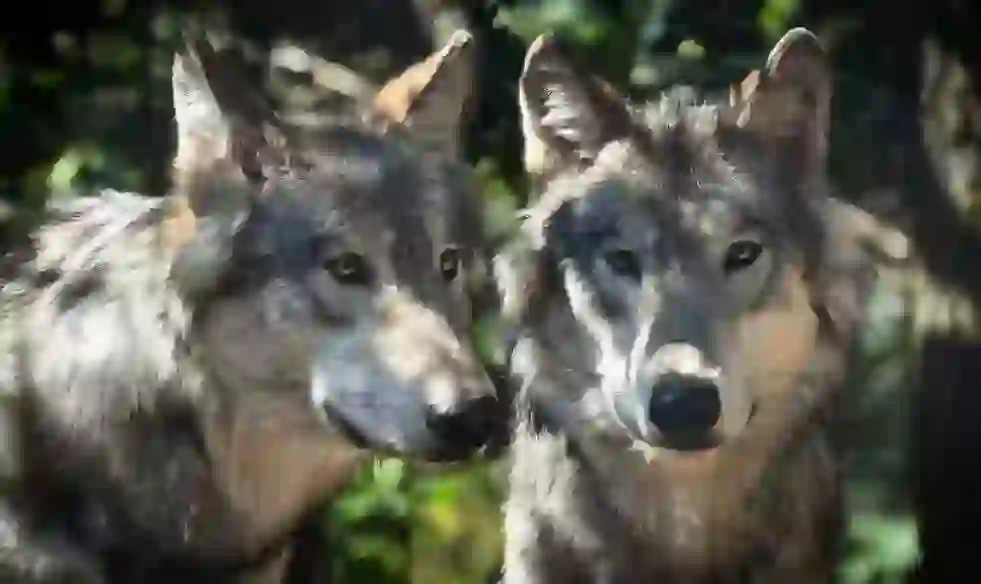
Mammalia Carnivora-Canidae-Canine genus.
Length:82~160cm. Weight:18~80Kg.
Wolves live in a wide area of the northern hemisphere, including the United States, Canada, Russia, India, and Europe. Originally, wolves inhabited a variety of places, but their range has been greatly reduced by persecution by humans.
In the past, wolves were the second most widely inhabited mammal in the world, but their numbers and habitat have been greatly reduced worldwide, and foxes are now the second most widely inhabited mammal.
By the way, the mammals that have expanded their habitat the most are humans.
Wolves basically live in packs called "packs" consisting of male and female pairs and their children. Wolves usually go into their breeding season in the spring and give birth to 1 to 11 children, but parenting is done by everyone in the pack, with the cooperation of their guards and pack members (called helpers).
Wolf hunting begins with wandering around a vast territory and finding prey. When they find prey, they all chase after it, and even kill and eat prey larger than themselves.
In normal hunting, they chase their prey for 100m to 5km to determine if they can catch it, but when they find a good prey, they sometimes chase it all night to try to catch it.
Wolf Q&A

What is the origin of the wolf's name?
It is called "wolf" in English and "ôkami" in Japanese, but this page will introduce the origin of "ôkami".
Wolves are no longer available in Japan, but in fact, wolves lived in Japan until about 100 years ago.
As an agrarian people, the Japanese were very grateful for the wolves that ate herbivores such as deer and wild boar that ravaged their fields and rice fields, and were worshipped as guardian gods of agriculture.
Such wolves are called "okami" or "ookuchi no makami" as messengers of the mountain gods, and it is thought that they came to be called "ôkami" from there.
Surprisingly, there are actually shrines all over Japan that enshrine wolves as messengers of the gods. In particular, at Mitsumine Shrine in Chichibu City, Saitama Prefecture, it is known that a "wolf statue" is enshrined instead of a "lion-dogs".
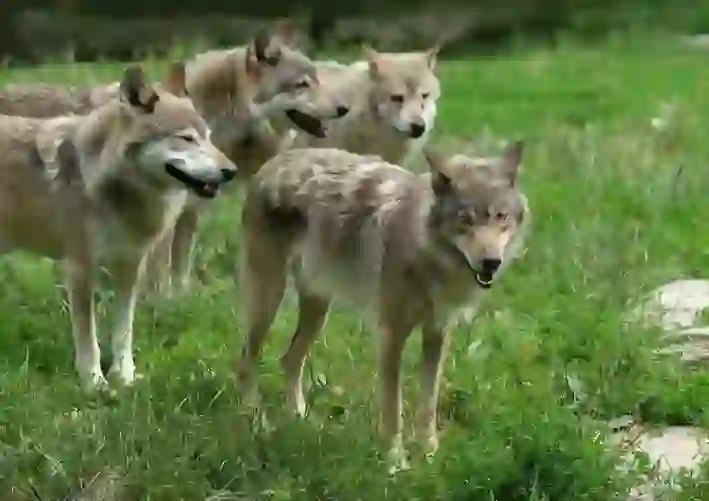
Is it true that wolves care about their families?
It's true.
A pack, which is a pack of wolves, usually has about 7 to 13 wolves belonging to it. Sometimes more wolves belong, but in any case, the pack bond is said to be very strong.
In particular, the male and female pair, the center of the pack, are known to have a strong bond, and once they are paired, that relationship will never be dissolved. If one of your pairs dies, you won't be looking for a new partner, with a few exceptions.
But inside the pack, there is a strict ranking system, and only the strongest number of males and females can have children. Therefore, if they are in the pack, they can lead a somewhat stable life, but children who are old enough to breed will leave the pack.
And find your own unique partner.
After that, you will wander through the vast lands looking for the territories you need to make a new pack.
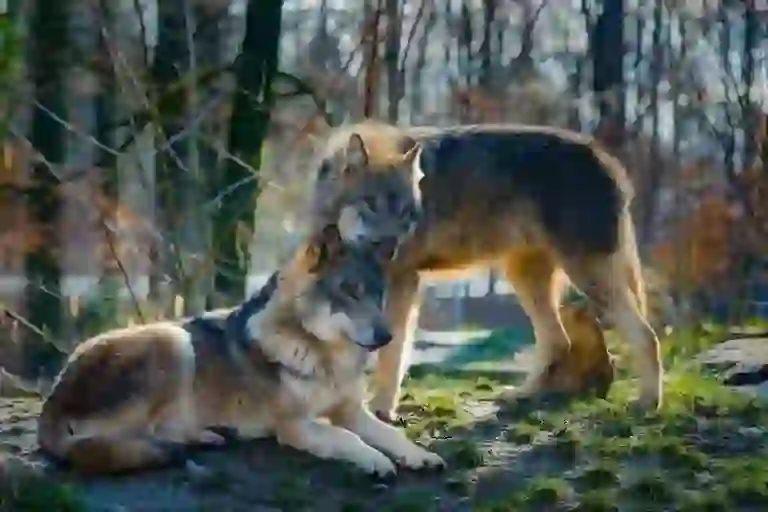
Why do wolves howl?
Many people think of wolves as barking or howling with their eyes closed and looking up. So why do wolves howl?
In fact, wolves declare their territory by howling. Wolves are large and need to eat a lot of meat in order to survive.It is said that the amount of meat eaten at one time is 7kg or 9kg, and a wide territory is essential to catch that much prey.
For this reason, wolves take advantage of their howling, which can be heard up to 10 km away in good conditions, to appeal, "This is their territory"!
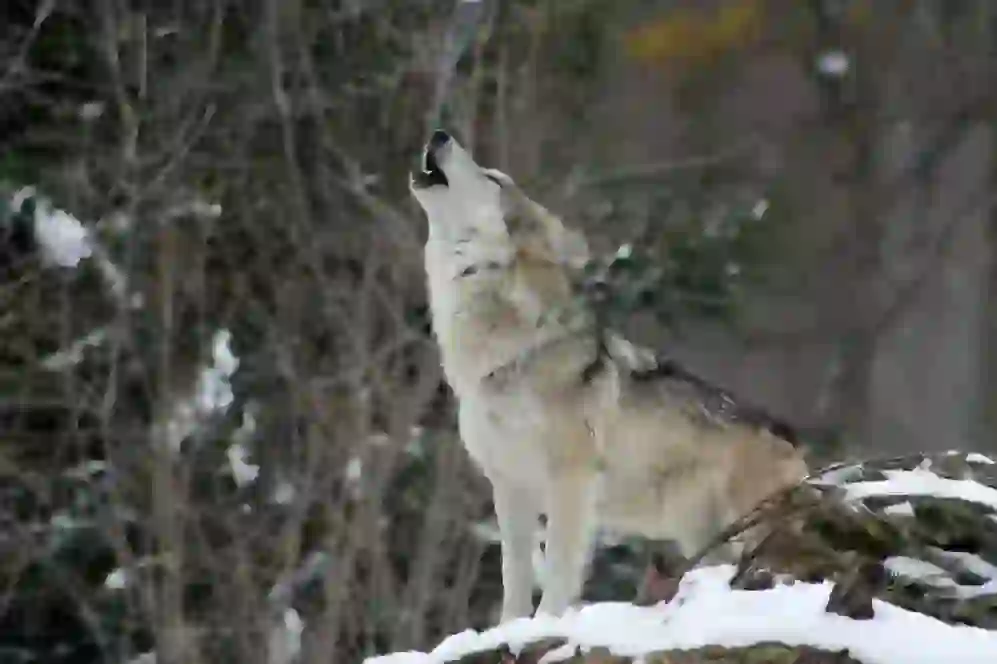
Is there really such a thing as a lone wolf?
Yes, there really are.
Both humans and wolves are basically animals that live in packs, but people who live without much interaction with other people are sometimes called "lone wolves" in Japan.
People who are human and called lone wolves look cool, but in the case of animal wolves, they are not in very good condition.
The wolf, born and grown in the pack, leaves the pack looking for his own partner when he is old enough to breed. The wolf immediately after leaving the pack is what is called a loner.
Loners in the wolf world are different from our image and live in seclusion so that other wolves will not find them.
This is because if the other packs find you, they will think you have invaded the territory and attack you, and in the worst case scenario, they will take your life. In addition, since a single animal cannot catch large prey, it manages to survive by eating dead meat, frogs, and anything else it can eat.
Only a wolf who has endured such a harsh life as a loner will eventually find a partner and form a pack.
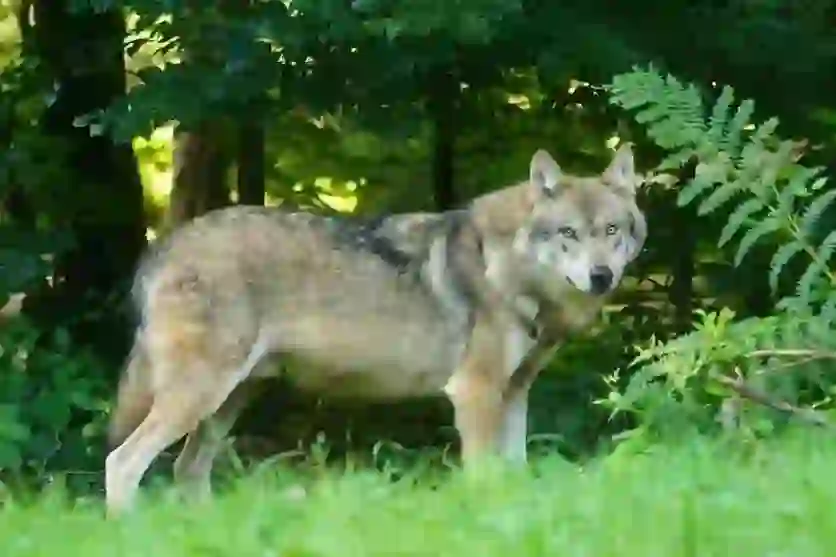
Don't wolves eat up herbivores?
The wolf never eats up all the animals.
This is because most of the animals that wolves eat on a daily basis are weak or injured. Healthy animals manage to escape attacks by wolves by running away or confronting them.
Therefore, when wolves find out that the prey they were targeting is a healthy and powerful animal, they quickly give up and go looking for the next prey. And wolves that just can't find their prey will eventually starve to death.
In fact, the animals are suffering from a serious lack of food because there are too many deer and wild boar in places where the wolves have disappeared. As a result, animals eat the bark and roots of trees and the trees die, or they come down to places where humans live and destroy fields and rice paddies.
In other words, wolves do not eat up all the animals they prey on, but rather the presence of wolves thins out the unhealthy animals and allows the healthy animals to survive in appropriate numbers. You can see that the presence of all animals, such as wolves and deer, is essential for the health of the mountains.
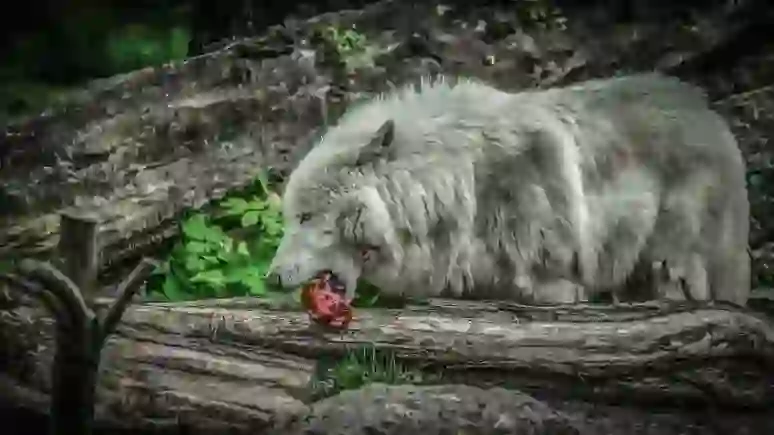
Do wolves attack humans?
Wolves are cautious animals by nature, so they do not actively attack humans.
In Japan, this sentence remains in a book called "Enkakidan" written by an artist named "Nishimura Haku" during the Edo period.
" For those who live in the mountains, wolves are familiar to them, so they don't get scared unnecessarily, and if you don't touch them, they won't bite you."
In other words, you don't have to be more scared than necessary.
However, it is known that when infected with rabies, it attacks all animals, including humans.
Rabies is a very frightening disease that can be transmitted to humans and is almost 100% incurable once it is contracted.
Incidentally, when keeping a dog whose ancestor is said to be a wolf as a pet, it is required by law to receive rabies vaccination once a year.
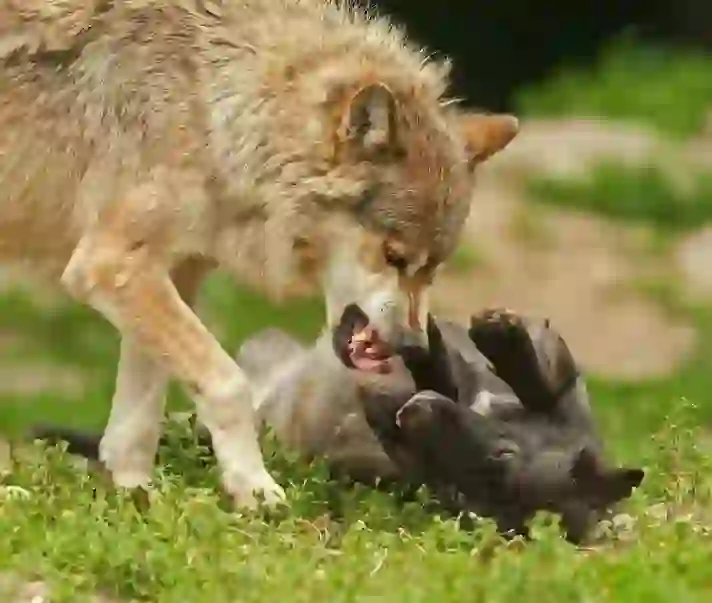
Why do wolves often turn out to be the bad guys in stories?
As I explained earlier, wolves are animals that rarely attack humans.
However, in the U.S. And Europe, wolves were very much disliked by hunters because they ate deer, bison, and other animals that humans used as hunting prey. They were also very disliked by ranch owners because they often attacked and ate livestock kept by humans such as cows and sheep.
It seems that because of this background, they often made wolves into bad guys.
In Japan, wolves were once considered to be messengers of the gods, but after reading fairy tales such as "Little Red Riding Hood" and "The Three Little Pigs," many people may think that wolves are cunning, ferocious, and dangerous animals.
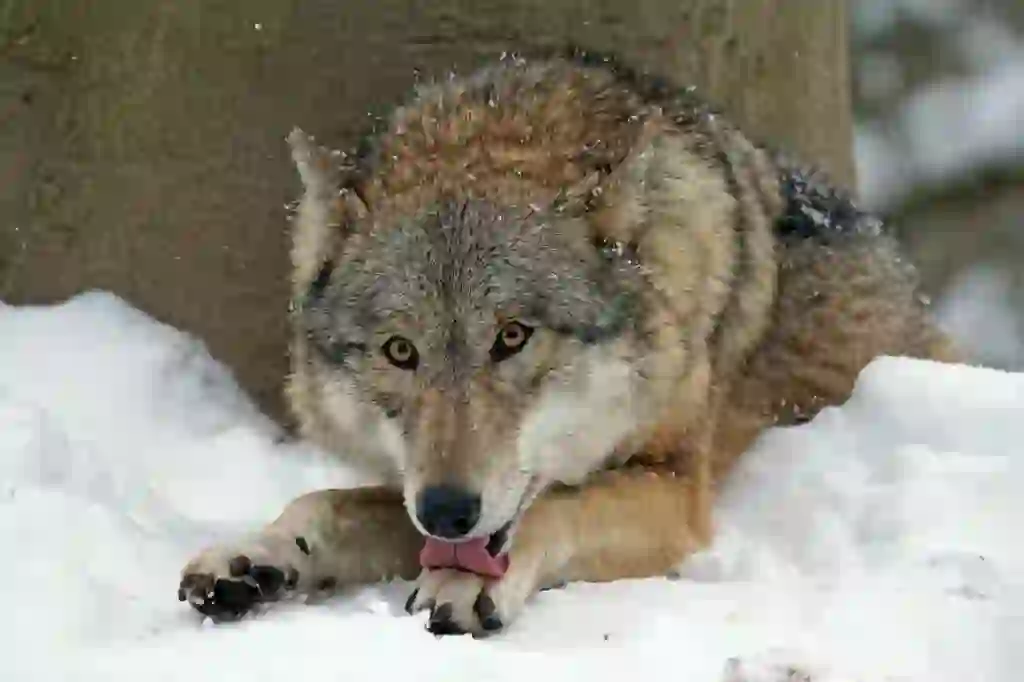
Is it true that there were two types of wolves in Japan in the past?
It's true.About 100 years ago, there were two types of wolves in Japan the "japanese wolf" and the "ezo wolf."
In the past, Japanese and Ainu people had a good relationship with wolves, but this relationship gradually fell apart as more and more wolves attacked and ate livestock and rabies attacked humans.
From the Edo period to the Meiji period, the government recommended catching wolves, and they received a lot of bounty when they were caught. Due to the combination of rabies and human capture, the japanese wolf is thought to have become extinct in 1905 and the ezo wolf in 1900.
Unfortunately, now both species can only be seen in their stuffed form.
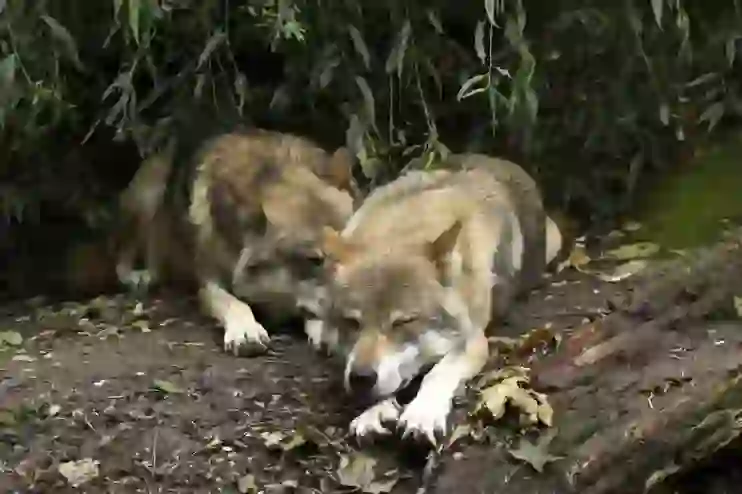
What enemies do wolves have?
Wolves are large and very strong carnivores, but they are not invincible.
The wolf's enemies are, surprisingly, the same wolves, and they can get seriously injured and sometimes even lose their lives in a struggle between packs over territory.
In addition, many of the herbivores that wolves prey on are large, so they may fight back and inadvertently get seriously injured.
But in fact, for wolves, our worst enemy is us humans. Wolves have been reduced in number around the world by being exterminated as vermin from attacking livestock and being caught to use their fur.
I explained earlier that the japanese and ezo wolves have become extinct, but the "newfoundland wolf," which lived on the island of Newfoundland in Canada, is also known to have been extinct by us humans. Also, the number of "mexican wolf" living in Mexico is decreasing, and there is a concern that they will become extinct.
Every year, it has become clear that wolves protect the natural environment, and conservation activities are being promoted here and there around the world to protect wolves. However, many people still oppose the protection of wolves and think that they should be exterminated.

Would you like to become a part of the 'Animalbook.jp'?
Turn your knowledge into Q&A and share it with the world. ※Publication will be activated after purchase. Let's share information together!
Wolf Type of List
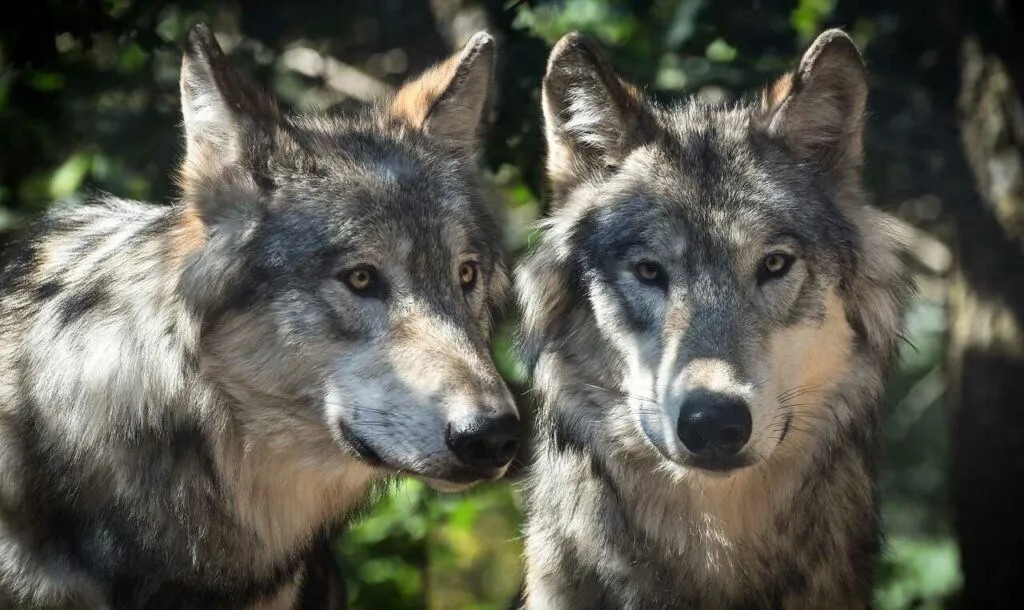
・Tundra Wolf ・Arabian Wolf ・Steppe Wolf ・Eastern Wolf ・Arctic Wolf ・Mexican Wolf ・Newfoundland Wolf(Extinct species) ・Japanese Wolf(Extinct species) ・Ezo Wolf(Extinct species)etc. *Since there are many subspecies and the classification differs depending on the academic theory, only 10 species are listed.
Information
Congratulations! You are the first commenter!

Create Your Favorite List!
Wolf
Save the animals you love! Build your own list to quickly revisit your favorites later.

Would you like to leave a comment?
※Please note: This is for the purchase of rights to post comments within the article.
Find Your Favorites!
Our shop offers a unique and attractive selection of goods themed around various animals.
Wolf References

- 今泉 忠明(2007年)『野生イヌの百科』データハウス
- 今泉 忠明(2000年)『絶滅動物誌 人が滅した動物たち』講談社
- 東京大学総合研究博物館「哺乳類 32ニホンオオカミ」 http://umdb.um.u-tokyo.ac.jp/DKankoub/Publish_db/1995collection2/tenji_honyurui1_32.html
- ナショナルジオグラフィック「動物大図鑑 オオカミ」 https://natgeo.nikkeibp.co.jp/nng/article/20141218/428809/
Wolf Introduction of media used

出典:https://pixabay.com/images/id-2984865/

出典:https://pixabay.com/images/id-4377376/

出典:https://pixabay.com/images/id-2178126/

出典:https://pixabay.com/images/id-1992716/

出典:https://pixabay.com/images/id-1583200/

出典:https://pixabay.com/images/id-4192857/

出典:https://pixabay.com/images/id-383928/

出典:https://pixabay.com/images/id-1990559/

出典:https://pixabay.com/images/id-1384944/
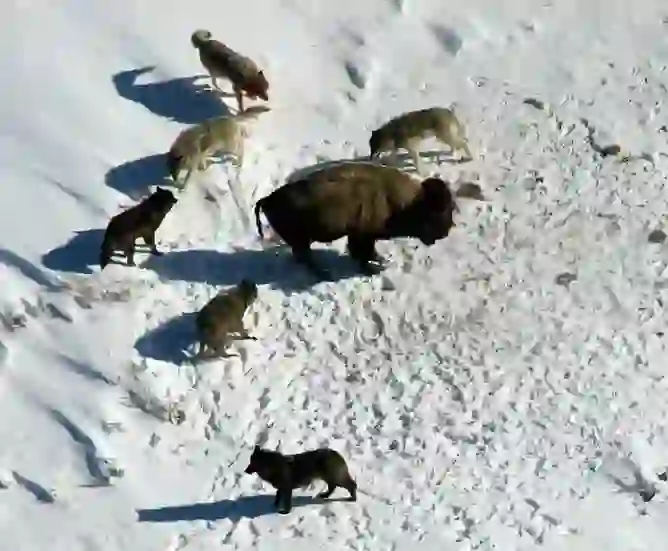
出典:https://pixabay.com/images/id-80497/
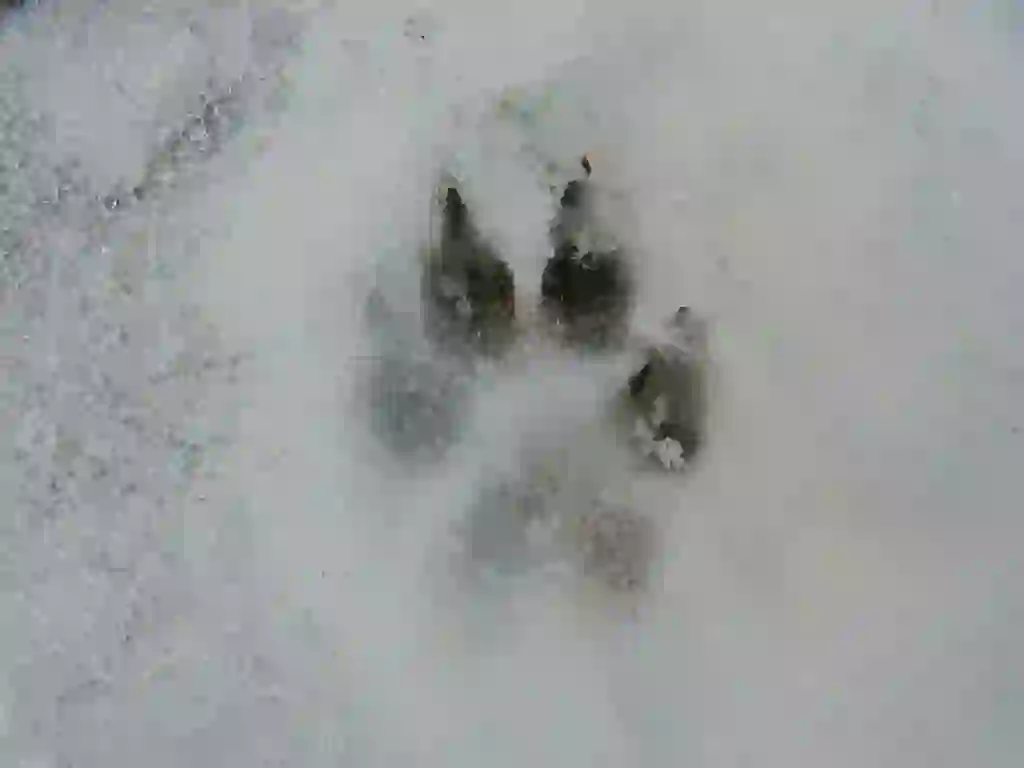
出典:https://pixabay.com/images/id-70099/

Help Enrich Our Animalbook.jp with Your Media!
We are constantly looking to expand and enrich our Animalbook.jp with amazing photos and videos of animals. If you have any media that you'd like to share, please contribute and help us showcase the beauty and diversity of the animal kingdom. Your submissions will be credited and featured in our encyclopedia, reaching a wide audience of animal lovers.


















